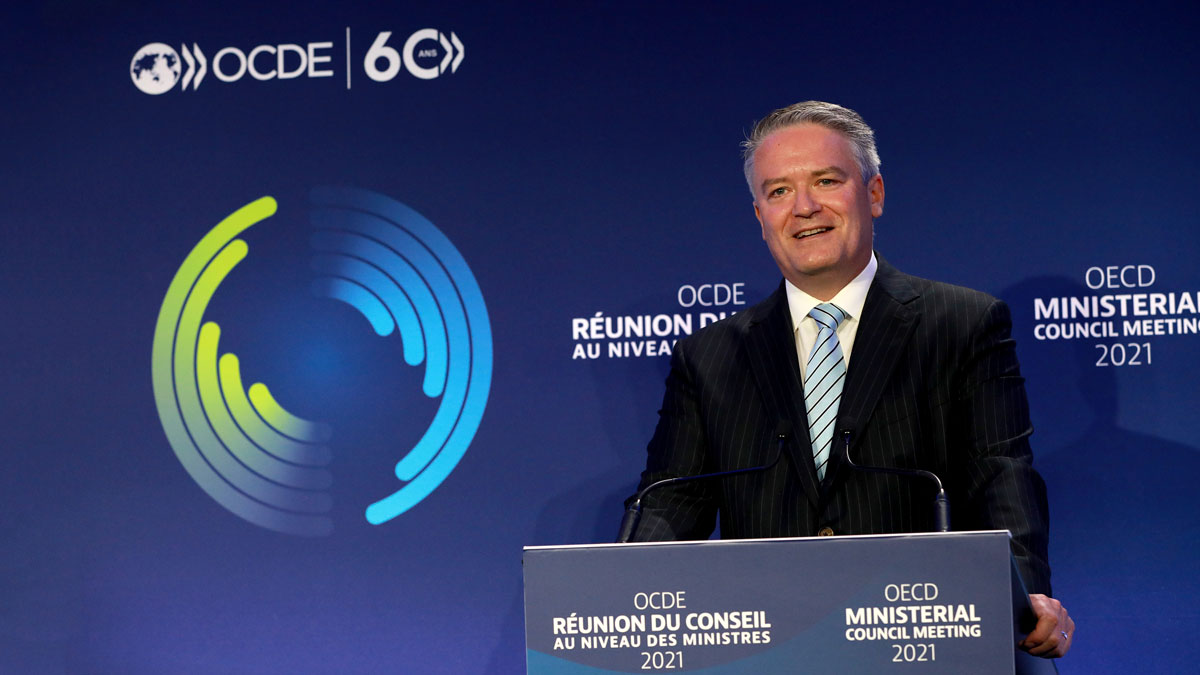Argentina, Brazil, Bulgaria, Croatia, Peru, and Romania to Access OECD
The Organisation for Economic Co-operation and Development (OECD) Council decided to open accession discussions with six candidates to OECD Membership – Argentina, Brazil, Bulgaria, Croatia, Peru, and Romania.
This follows careful deliberation by OECD Members on the basis of its evidence-based Framework for Consideration of Prospective Members and the progress made by the six countries since their first respective requests for OECD membership.
Individual roadmaps for the detailed assessment process will now be prepared provided those countries confirm their adherence to the values, vision and priorities reflected in the OECD’s 60th Anniversary Vision Statement and the Ministerial Council Statement adopted last year.
These documents reaffirm the goals of the OECD’s founding Convention, to which new Members must accede, and set out the values shared by OECD Members, including the preservation of individual liberty, the values of democracy, the rule of law and the protection of human rights, and the value of open, trading, competitive, sustainable, and transparent market economies. They also refer to OECD Members’ commitment to promote sustainable and inclusive economic growth and their goals to tackle climate change, including halting and reversing biodiversity loss and deforestation.
“OECD Members confirmed today that the OECD is an open, globally relevant and evolving organisation. OECD membership remains the most direct and effective way to ensure the adoption and dissemination of our shared values, principles and standards across the world,” OECD Secretary-General Mathias Cormann noted. He pointed out that “candidate countries will be able to use the accession process to promote further reforms for the benefit of their people, while also strengthening the OECD as a like-minded community committed to a rules-based international order”.
“I warmly welcome today’s OECD decision to open accession negotiations with Romania. Thank you, (Secretary-General) Mathias Cormann and Member States for supporting Romania’s candidacy! We remain committed to pursue the goal of OECD membership, with energy & determination,” Romanian President Klaus Iohannis said.
As responses are received from candidate countries to the letter from the Secretary-General, individual Accession Roadmaps will be considered and adopted by the OECD Council, setting out the terms, conditions and process for accession and reflecting priority areas already identified by OECD Members.
The process will include a rigorous and in-depth evaluation by more than 20 technical committees of the candidate country’s alignment with OECD standards, policies, and practices.
As a result of these technical reviews, and prior to any invitation to join the organisation as Members, changes to the candidate countries’ legislation, policy and practices will be required to bring them into line with OECD standards and best practices, thus serving as a powerful catalyst for reform.
The technical reviews will cover a wide range of policy areas and will focus on priority issues including open trade and investment, progress on public governance, integrity, and anti-corruption efforts, as well as the effective protection of the environment and action on climate.
There is no deadline for completion of the accession processes. The outcome and timeline depend on each candidate country’s capacity to adapt and adjust to align with the Organisation’s standards and best practices.
Once all the technical committees have completed their reviews, a final decision will need to be taken by unanimity of all OECD Member countries in OECD’s Council.
OECD Economic Survey of Romania
The OECD will present an Economic Survey of Romania on January 28th. The Survey examines Romania’s strong economic performance of recent years, the impact of the COVID-19 crisis and the structural challenges that still need tackling. Special chapters take an in-depth look at Romania’s business environment and labour market and suggest areas where further reforms could drive productivity and reinvigorate economic growth.
OECD Secretary-General Mathias Cormann will present the Survey’s main findings in an online presentation alongside Prime Minister Nicolae-Ionel Ciuca, the Chairman of the Fiscal Council Daniel Daianu and the Chairman of the National Commission for Strategy and Forecast Cristian Stanica starting at 10:30 and livestreamed on the government’s Facebook page. A physical press conference will follow at 11:10 at the Hall of Honour of the Victoria Palace (Guvernul Romaniei) in Bucharest and will also be livestreamed at the same link. Both events will take place in English and Romanian with simultaneous interpretation.
Working with over 100 countries, the OECD is a global policy forum that promotes policies to preserve individual liberty and improve the economic and social well-being of people around the world.







